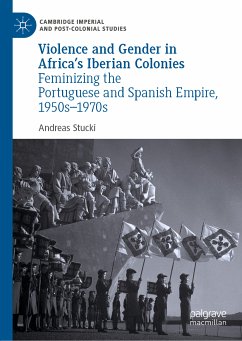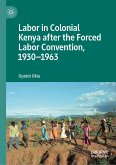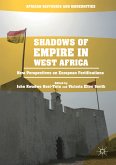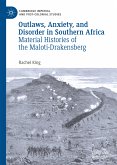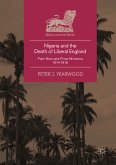Dieser Download kann aus rechtlichen Gründen nur mit Rechnungsadresse in A, B, BG, CY, CZ, D, DK, EW, E, FIN, F, GR, HR, H, IRL, I, LT, L, LR, M, NL, PL, P, R, S, SLO, SK ausgeliefert werden.
"Andreas Stucki's book Violence and Gender in Africa's Iberian Colonies is a valuable and innovative addition to an established corpus of scholarship on the gendered nature of colonialism, as well as to the small but rapidly expanding historiography on the Iberian colonies in Africa. With accessible and lively prose, as well as striking details about the lives of individual women affected by colonization, the book is immensely readable." (Joanna Allan, Journal of Spanish Cultural Studies, November 12, 2020)
"This is a fundamental volume for those who want to delve further into a comparative history of late colonialism, with gender as its core axis." (José Pedro Monteiro, e-journal of Portuguese History, Vol. 17 (2), December, 2019)

